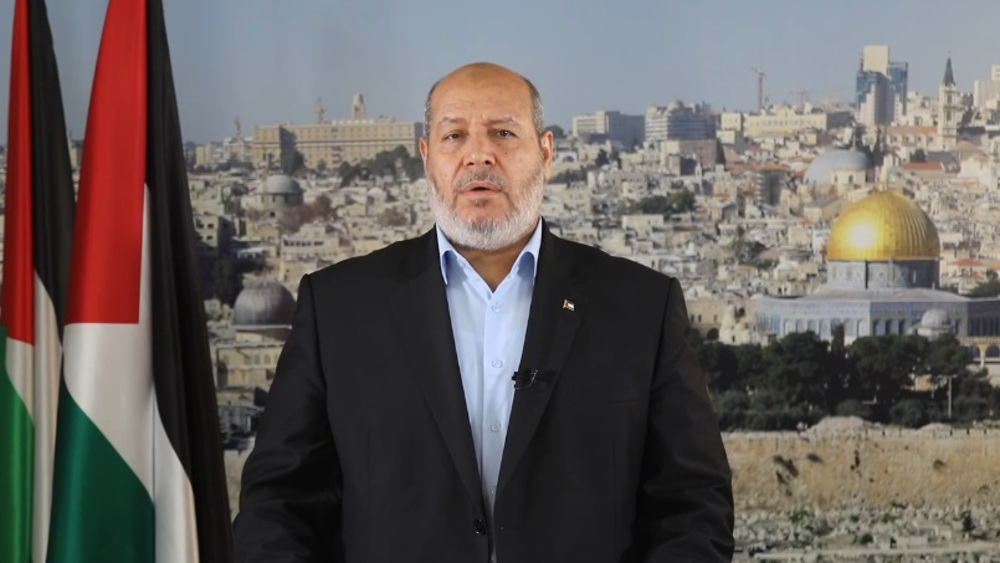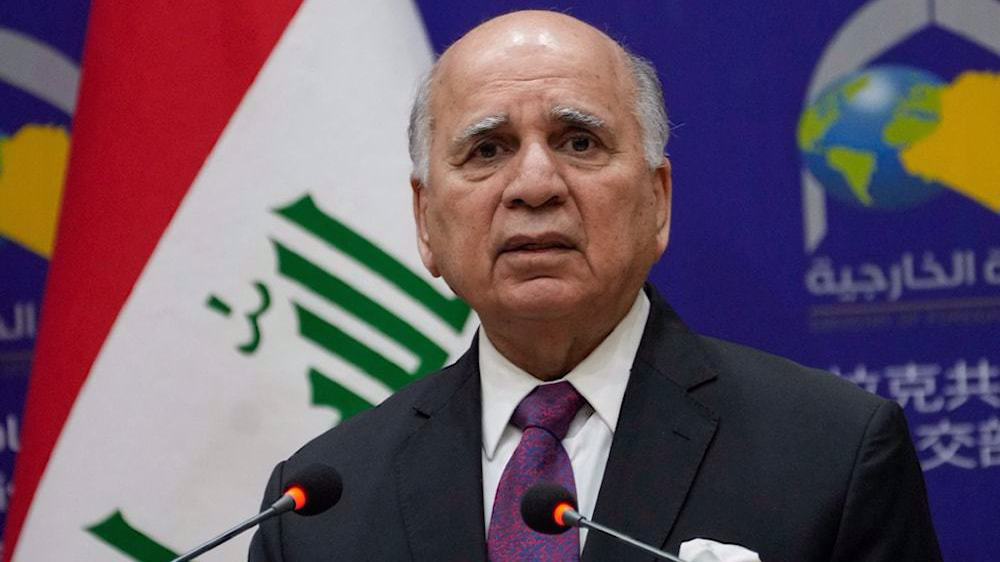Iran, Iraq, Turkey warn Kurds against referendum
Iran, Iraq and Turkey have voiced concerns over a planned secession referendum in the northern Iraqi Kurdistan region, warning that the unconstitutional vote could fan the flames of tensions in the Middle East.
Foreign ministers of Iran, Iraq and Turkey, namely Mohammad Javad Zarif, Ibrahim al-Ja’afari and Mevlut Cavusoglu made the remarks in a joint statement issued Thursday following a meeting on the sidelines of the UN General Assembly session in New York.
The statement expressed opposition to the planned referendum, warning that the move will jeopardize Iraq’s campaign against Daesh Takfiri terrorists and will lead to new conflicts across the already troubled region.
The three neighboring states also called on the Iraqi Kurdish leaders to refrain from holding the vote and underlined the need for dialog between Baghdad and Arbil to resolve the issue.
The statement also called for efforts to protect Iraq’s sovereignty and national unity.
PM Abadi: Vote to ‘open door for bloodshed’
On Wednesday, Iraqi Prime Minister Haider al-Abadi warned against catastrophic ramifications of a planned independence referendum in the country’s northern Kurdistan region, calling for dialog to resolve the issue.
“This referendum is against the constitution, it divides the country, and it weakens the country. I call for dialog on the unity of Iraq, we are in one country,” Abadi said during a speech in Baghdad on Wednesday.
“Now if people’s lives are dependent on the borders, we can deal with this through negotiations. Let there be dialog. But for one side and with this use of force, this will open the door for bloodshed,” he added.

The prime minister pointed to the global concerns over the consequences of the vote, saying, “The world is worried, today. The entire world is aligned in their support to the unity of Iraq, and the sovereignty of Iraq. They consider the unity and sovereignty of Iraq a primary factor in fighting terrorism and for the stability of the whole region, not just Iraq.”
Tensions have been running high between the Baghdad government and the local Kurdish leadership, which is poised to put secession from the mainland to referendum on September 25.
Baghdad has condemned the plebiscite as unconstitutional, repeatedly calling on the Kurdistan Regional Government (KRG) to suspend the vote, which is planned to be held in three provinces that make up their region, as well as in disputed areas that are controlled by Kurdish forces but claimed by Baghdad, including the oil-rich Kirkuk Province.
On Monday, Iraq’s top court temporarily suspended the Kurdish independence referendum, saying it “issued a national order to suspend the referendum procedures ... until the resolution of the cases regarding the constitutionality of said decision.”
Following the ruling, the Iraqi premier also formally asked the Kurdish officials to halt the process.
In response, Massoud Barzani, the KRG leader, gave Baghdad three days to come up with an alternative plan that was guaranteed by “the international community, the US and Europe.”
“But I will be honest with you, Baghdad has not reached that level yet,” he said, warning that postponing the vote was “impossible.”
The United Nations and regional powers like Iran and Turkey have expressed concerns about the planned vote by the KRG, arguing that it could create further instability in the already volatile region.
The planned vote has especially angered Turkey, which has long been grappling with pro-independence Kurdish militancy at home.

Turkish President Recep Tayyip Erdogan cautioned that the upcoming referendum could lead to new conflicts in the Middle East. He has also threatened the semi-autonomous region with sanctions in case it goes ahead with the plan.
The Israeli regime, however, has come out in apparent support of the referendum.
The US, which has deployed a contingent of military forces to a base in the Iraqi Kurdistan region, has also voiced “strong” opposition to the referendum; however, many observers view the vote in line with a long-pursued Israeli-US agenda to partition regional states.
On Wednesday, Leader of Yemen’s Ansarullah movement Abdul-Malik al-Houthi, whose country has been grappling with more than two years of US-backed aggression, described the planned referendum as an Israeli-US plot.
He warned that the scenario is aimed at disintegrating all the regional countries, including Yemen.
Tehran rejects Elon Musk’s role in release of Italian journalist as ‘media fantasy’
Pezeshkian: Iran open to talks but prepared to crush enemy if attacked
Araghchi: Iran-Russia strategic deal step toward ‘more just world’
UNRWA unraveled amid Israel's allegations, reduced intl. support
Palestinian journalist, a Sobh Media Festival awardee, killed in Gaza hours before truce
Jan. 15: ‘Axis of Resistance’ operations against Israeli occupation
VIDEO | Fears, hope in Gaza amid intensified ceasefire efforts
VIDEO | Press TV's news headlines












 This makes it easy to access the Press TV website
This makes it easy to access the Press TV website